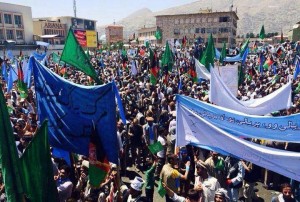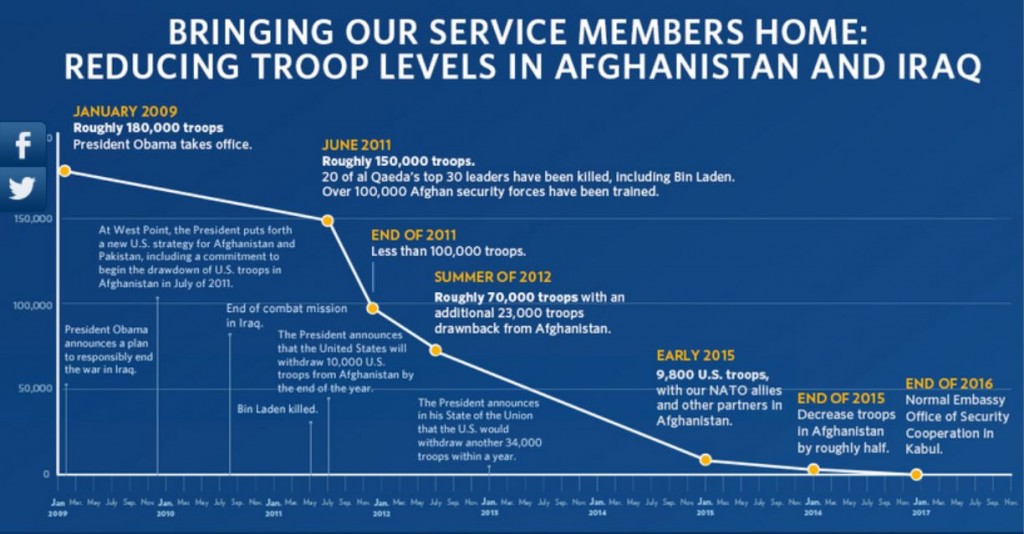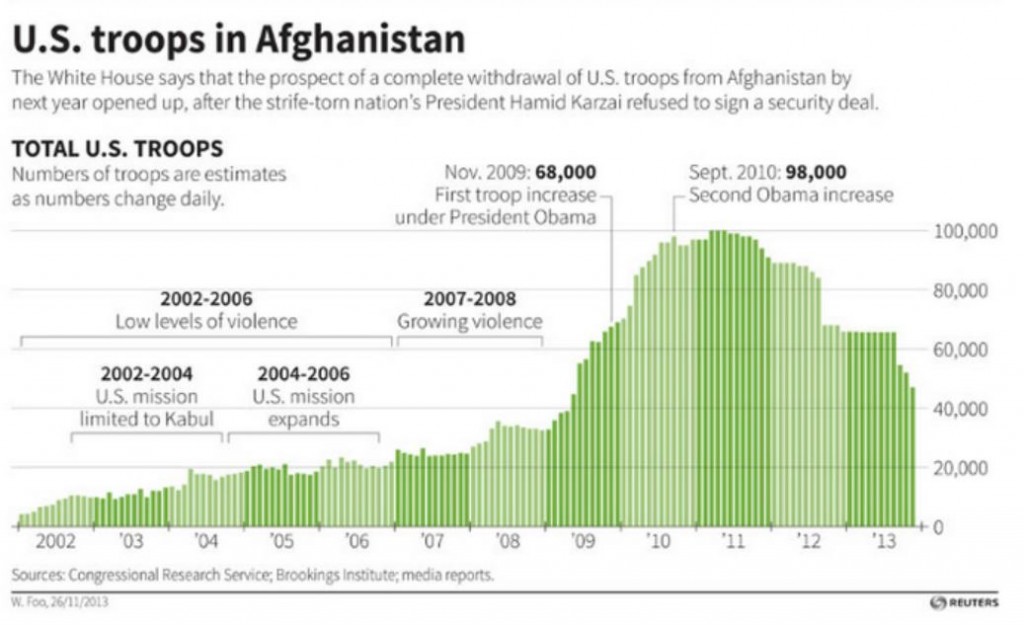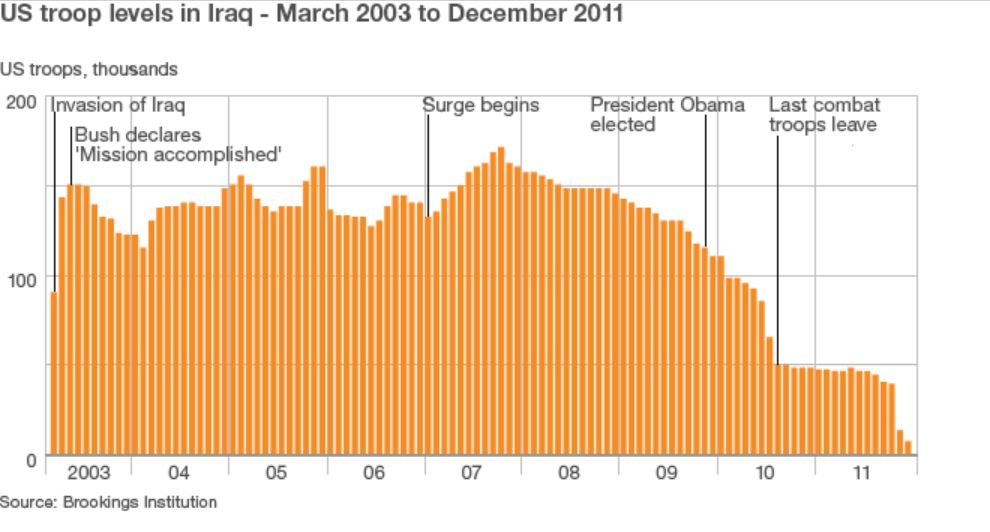Abdullah Supporters Reject Preliminary Results, Urge Parallel Government
A few numbers will serve to highlight both the rage of Abdullah Abdullah’s supporters and the extent of the fraud which they believe to have been perpetrated on behalf of Ashraf Ghani in Afghanistan’s presidential election. In the first round of the election, there were 7,018,049 votes cast and Abdullah fell just short of winning outright (which would have occurred had he topped 50% of the vote) with 45% of the vote. Ghani finished well behind him, at 31.6%. Yesterday, the preliminary results of the June 14 runoff were announced. This time, there were 8,109,403 votes cast, an increase of just over 15% from the first round. It should also be noted that turnout in the first round represented about a 50% increase from the 2009 election. Ghani somehow surged to 54% of the vote this time, leading Abdullah by 1,024,249 votes.
In yesterday’s announcement, we learned that some votes have been thrown out over suspected fraud:
In Monday’s announcement, Mr. Nuristani said that the Independent Election Commission, while tallying the preliminary results, had already thrown out more than 11,000 votes from 1,930 polling stations. About 60 percent of the disqualified votes had been cast in favor of Mr. Ghani, with the reminder cast for Mr. Abdullah.
While 11,000 fraudulent votes sounds like a lot, note that Abdullah’s camp was already suspicious of the huge increase in turnout for the runoff compared to the first round. While there still is additional review of the voting planned which could eliminate more votes, the 11,000 votes discarded falls far short of the 2009 election and the first round this year:
In contrast to 2009, when more than 1.2 million votes were found to be fraudulent and were discarded, the two commissions threw out only 375,000 votes this time.
In the eyes of Abdullah supporters, it is easy to question how Ghani could have more than doubled the number of votes he received in the runoff (going from about 2.2 million votes to over 4.4 million) while Abdullah, who had been far ahead, only added about three hundred thousand votes (going from 3.2 million to 3.5 millon). Somehow, we are supposed to believe that Abdullah has the support of only 44-45% of the Afghan electorate, no matter how many show up and that Ghani was able to magically obtain the vote of every Afghan who voted for someone other than Ghani or Abdullah in the first round while also getting 56% of those new more than one million voters who turned up for the runoff.
It is little wonder, then, that Adbullah’s supporters completely reject the results announced yesterday:
Presidential candidate Abdullah Abdullah’s team said it would reject preliminary results from the runoff election unless fraudulent votes were excluded from the count, his running mate Mohammad Mohaqeq said in an interview with TOLOnews on Monday evening.
/snip/
Mohaqeq warned that if their team denounces the results, so to will people in various provinces, and then the government and the election commission will be responsible for the consequences.
“We want to say to the people of Afghanistan that if our conditions aren’t accepted and the assigned commission doesn’t reach an outcome and our condition that invalid votes be distinguished from genuine votes is not accepted, we will not accept the results and consequences will follow and responsibility will be on the government, the rigging commission and rigging team,” Mohaqeq said.
Abdullah has declared himself the victor, but for now is holding off on announcing a parallel government:
Embattled Afghan presidential contender Abdullah Abdullah defiantly mobilized thousands of his supporters in the heart of the capital Tuesday, vowing to challenge preliminary election results that show him trailing his rival, amid accusations of massive fraud.
“You are the victorious; you have won the vote — there is no question,” Abdullah shouted to a cheering crowd at a spacious conference hall in western Kabul. “We would rather be torn into pieces than accept this fraud,” he said. “We reject these results . . . and justice will prevail.” The former foreign minister alleges election officials rigged the vote in favor of his opponent, former finance minister Ashraf Ghani, in a June 14 presidential runoff.
There were fears that Abdullah and his team would use the rally to declare a parallel government, which would have aggravated Afghanistan’s political crisis and raised the risk of bloodshed. But Abdullah stopped short of announcing his own cabinet Tuesday, drawing jeers from the audience, which urged him to declare himself president.
“Long live Abdullah!” his supporters cried. “Announce your government!”
John Kerry is slated to visit Kabul on Friday and is warning that the US will withdraw support for Afghanistan if a parallel government is announced. Given the speed at which events seem to be unfolding, Friday could well be too late for Kerry to have any impact (if that ever had been possible anyway). Does Kerry’s announcement signal that the US will only accept Ghani as the winner?




